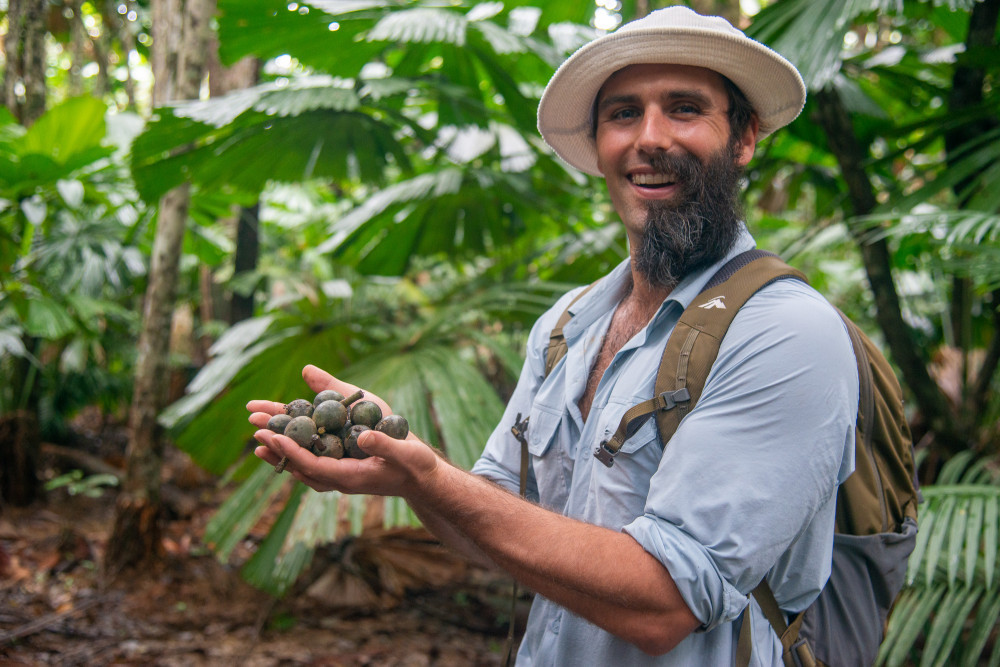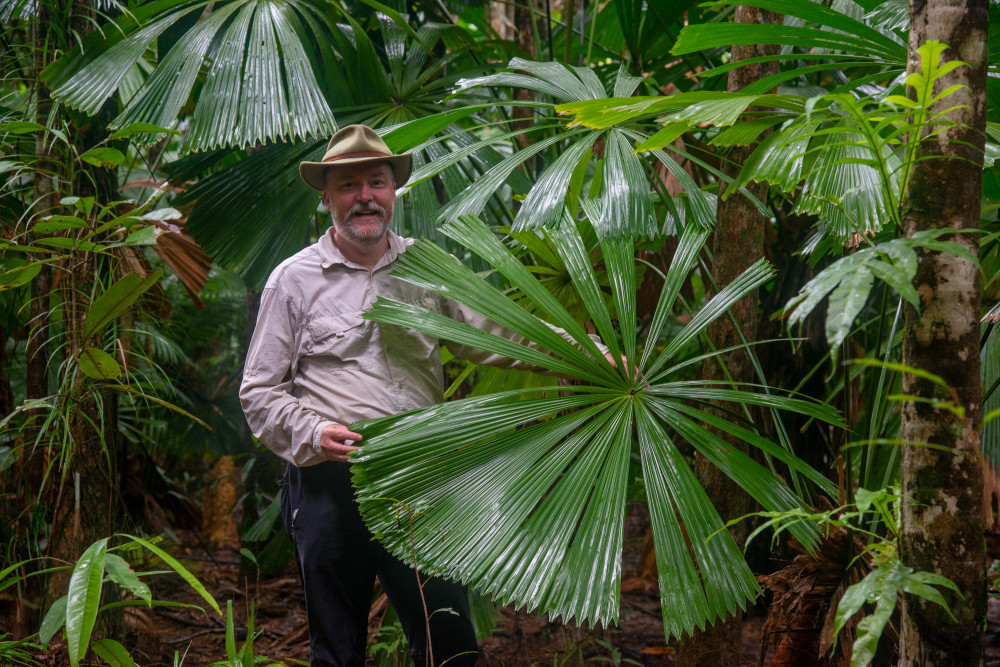General News
5 August, 2021
Daintree Fan Palm Forest protected forever
Donors from around Australia are celebrating a huge win with Lot 110 in the Daintree protected forever as a result of their contributions.

Lot 110 Palm Road, Diwan is the 11th property to be secured by Rainforest 4 Foundation, working collaboratively with Jabalbina Yalanji Aboriginal Corporation and non-profit partner HalfCut.
Settlement on the purchase will occur on 18 October.
Kelvin Davies is the Founder of Rainforest 4 and he said that the 8.09-hectare block is covered in majestic Fan Palms and contains seven threatened plant species.
“This Fan Palm dominated vegetation type occurs only between Cardwell and Cape Tribulation,” Kelvin said. “There was just 3,000 hectares of this type of forest prior to clearing but only 1,000 hectares remains today.”
“Sadly, less than half of what does remain is protected in reserves.”
Kelvin said as well as this forest type being significant as a regional ecosystem it is also critical habitat for the endangered Southern Cassowary.
“Cassowaries are reliant on the fruits of rainforest plants,” he said. “Those fruits make up 98% of their diet.”
“As Fan Palms produce fruits between January and March these plants are particularly important to Cassowaries as many other plants are not fruiting at that time,” Kelvin explained.
Fan Palms aren’t the only plants of significance on Lot 110. A vegetation survey was undertaken by an ecologist on the block on 30 April 2021 and hundreds of species of native plants including seven threatened species were identified.
Noah’s Walnut, Grey’s Walnut, China Camp Laurel, Climbing Pandanus, Daintree Ryparosa, Ant Plant, and Isachne sharpii (no common name) are all listed under the Queensland Nature Conservation Act 1992 and are all found on the site.
A small grass, which is highly localised and Endangered was also found on the site. Isachne sharpii grows to 15cm tall and was found growing in water on the block. The plant was first identified in 2001 from specimens found less than 1km from Lot 110 but it was only confirmed as a new species in 2010.

You can read more about the vegetation on Lot 110 Palm Road in Rainforest 4 Foundation’s ecologist’s report.
Jimmy HalfCut visited the property last month. He has shaved half his beard to raise awareness about the plight of the world’s rainforests and is inspiring hundreds of like-minded people to do the same while raising funds for the Daintree through the month of August. Jimmy said he was honoured to work alongside such passionate partners.
“When I visited the property, I was overwhelmed at the number of plants of significance on the block,” Jimmy said. “Knowing there are 199 plant species on just one site really reinforces why we are on a mission to buy back these properties.”
Kelvin said this latest purchase brings the organisations one step closer to their goal of acquiring 207 undeveloped freehold properties.
“Many of these blocks are still at risk of development,” Kelvin said. “Lot 110 is just one of those properties.”
“I’m humbled that fellow non-profit organisations HalfCut and the Jabalbina Yalanji Aboriginal Corporation have joined with us to expand and manage our Daintree land buyback program.”
“I’m even more thrilled that everyday Australians have thrown their weight behind our plans to buy back these blocks and return them to Traditional Owners.”
The properties acquired by the Rainforest 4 Foundation are then transferred to the Jabalbina Yalanji Aboriginal Corporation and Land Trust where they are managed by the Traditional Owners, the Eastern Kuku Yalanji as part of the Daintree National Park and Cape York Peninsula Aboriginal Land (CYPAL) estate.
In 2007, the Eastern Kuku Yalanji signed a series of Indigenous Land Use Agreements with the Queensland Government. These agreements recognise Eastern Kuku Yalanji's rights to be custodians and managers of their traditional country. Under these agreements, Eastern Kuku Yalanji people will be involved in managing Daintree National Park.
The Queensland Government provides funding to the Jabalbina Yalanji Aboriginal Corporation to co-manage the Daintree National Park and this includes the properties acquired through our buyback program.
“A rural residential subdivision was carved into the Daintree Lowland Rainforest in 1982. This created Palm Road and dozens of freehold properties,” Kelvin said. “Then houses were built and occupied, bringing domestic dogs and exotic plants. This has damaged one of the most significant remnants of Fan Palm dominated tropical rainforest.”
“But together, we have ensured that Lot 110 doesn’t meet the same fate as other properties in this area.”
“This incredible block, dominated by the most beautiful Fan Palm rainforest you’ll ever see has been protected forever.”
For more information and to support the purchase and protection of additional properties in the Daintree Lowland Rainforest visit www.Rainforest4.org.


